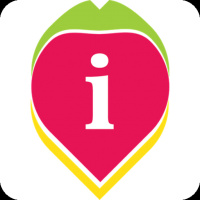Sinopse
Improve your English in just a few minutes a day! Learn English grammar, vocabulary, phrases, idioms, and more.
Episódios
-
10 practical phrases for worries and relief
08/07/2020 Duração: 05minWhen you're worried, it's even harder to express yourself in English - but this lesson will help: 10 Practical English Phrases for Talking about Worries & Relief. These can help expand your vocabulary by going beyond the basic "I'm worried" and "I'm relieved." To learn more, join my Everyday English Speaking Course: https://www.espressoenglish.net/everyday-english-speaking-course
-
4 different ways to pronounce words starting with "U"
01/07/2020 Duração: 04minDid you know that these words all have DIFFERENT ways to pronounce the "u" in the beginning? ultimate union urgent urine In today's lesson, you'll practice pronouncing English words starting with U. Listen and repeat to improve your pronunciation! Just like when you do exercise in the gym to improve your physical condition, doing pronunciation exercises improves your ability to speak English correctly! That's why my American English Pronunciation Course is full of practice. Whatever sounds you find difficult in English, this course will help you improve. By listening and repeating the words and sentences aloud, you'll train your mouth to say them clearly. If you're not able to join the Pronunciation Course, you can always use my YouTube videos to practice listening and repeating what I say.
-
DON'T use a preposition in these 5 situations!
24/06/2020 Duração: 05minPrepositions like in, of, at, from, and to are used very frequently in English. However, there are some cases in which you SHOULDN'T use one – and in today's lesson, you'll learn 5 times you should not use a preposition. This is one of my top grammar lessons on Espresso English. I hope you enjoy it! English grammar can certainly be complicated... but I'll make it clear to you when you join my Advanced Grammar Course! The 45 lessons in this course will teach you all the verb tenses as well as adjectives, adverbs, prepositions, sentence structure, and other more complex topics. You also have the option to practice your writing, and send your texts for feedback and correction by a teacher on the Espresso English team. What if you're not yet advanced enough for that course? Then I'd recommend joining 200 Common Errors in English. You'll learn how to avoid the most common mistakes in grammar, vocabulary, pronunciation, spelling, and learning strategy.
-
Compliment vs. Complement vs. Complimentary vs. Complementary
17/06/2020 Duração: 02minThese two words are pronounced the same, but they are spelled differently and have different meanings! Lesson text: https://www.espressoenglish.net/difference-between-compliment-and-complement/ This is a free sample from the e-book 600+ Confusing English Words Explained. It will help clear up your doubts about how to use English words correctly, so that you can speak and write more confidently. Click here for more information.
-
Learn 36 compound words to expand your vocabulary
10/06/2020 Duração: 28minToday I'm sending you a special class all about compound words! Compound words are when two or more words are put together to form a new word with a new meaning - like notebook, mother-in-law, and post office. Sometimes compound words are easy to understand: a bookstore is a store that sells books; a dishwasher is a machine that washes dishes. But others might not be so obvious, for example: brainstorm – an intense process where you think of many different ideas scapegoat – someone who bears the blame for others In this lesson, you'll learn the meanings of 36 compound words in English. If you’d like to continue improving your vocabulary, you’ll really enjoy the Vocabulary Builder Courses at Espresso English. Level 1 of the course focuses on essential everyday words for things in daily life, work, study, travel, describing people, describing the world, etc. Level 2 of the course goes deeper into these subjects and also has lessons on more advanced topics like binomials, metaphors, word roots, and pref
-
My secret for staying motivated with Espresso English
04/06/2020 Duração: 03minMy recent videos were all about staying motivated when learning English... ...but what's MY secret to staying motivated when teaching English? There are some days when I feel sad, lazy, and discouraged. Sometimes I don't have the energy to prepare new lessons, and I don't want to turn on my video camera. Yes... even your English teacher lacks motivation sometimes! But here's how I get motivated again: I visit a page on the Espresso English website that you might not know about... it's called "Student Stories." Read student stories - and add yours - by clicking here! - https://www.espressoenglish.net/student-stories/ It has SO MANY wonderful comments from students like you - all talking about how my lessons have helped them and changed their lives. When I read these student stories, it always makes me happy - and then I feel motivated and EXCITED to create more lessons and help more students! What's amazing about these stories is that there are students from lots of different countries... students of all
-
273 - Stay motivated tip #10 - Challenge and reward yourself
31/05/2020 Duração: 04minI’m sharing my tenth and final tip for how to stay motivated to learn English. This one is really interesting and fun, and it can really help you keep up your motivation and desire to make more progress in your English. Tip #10 is Challenge Yourself, Then Reward Yourself When You Reach Goals Sometimes when you’re studying English by yourself, it can be discouraging because there’s nobody to say “Nice work!” or celebrate your successes. But if you give yourself challenges and rewards, it can give you the motivation to keep going and not quit.
-
272 - Stay motivated tip #9 - Find a learning partner
28/05/2020 Duração: 03minToday’s tip for staying motivated is Find A Partner Or Join A Community Scientists have discovered that one of the most effective motivators is “peer pressure” – that’s encouragement or expectation from people who are similar to you.
-
271: Stay motivated tip #8 - Make learning English fun
25/05/2020 Duração: 03mintoday’s tip for how to stay motivated to learn English is very important. It’s so simple, but it will make a big difference in your English learning experience. Make Learning Enjoyable You don’t have to study the exact same way every time! Try to have some variation, to keep things interesting. Here’s another tip for making English more fun – find material in areas of your interest. Finally, learn from a teacher who you like!
-
270: Stay motivated tip #7 - Plan to come back after a break
22/05/2020 Duração: 03minHi there! Today I’ll share my seventh tip for how to stay motivated to learn English, and that is: Plan For Breaks, But Also Plan To Come Back If you have a very busy day, it’s OK to skip your studying – just make sure to come back to it the next day. If you’re going on vacation for a week, it’s OK not to look at English. Relax and enjoy your vacation, then resume your studies afterwards. The key is always to come back to English – don’t let yourself get so busy that you forget to study for weeks and months.
-
269: Stay motivated tip #6 - What to do when you feel lazy
19/05/2020 Duração: 03minHello students! I’m back with another tip for how to stay motivated to learn English. This tip is for you on those days when you really have low motivation and you feel lazy, and you just aren’t very interested in studying English. When You Feel Lazy, Just Take A Baby Step A “baby step” is a very small action.
-
268: Stay motivated tip #5 - Keep an English success journal
16/05/2020 Duração: 03minToday I’m giving you tip #5 on how to stay motivated when you’re learning English. This is something very practical and if you do it, you will find it very helpful and encouraging. Keep A Record Of Your Progress (Success Journal) It’s very motivating to keep a record of what you’ve accomplished. Get a notebook, and after every study session write down the date and a summary of “what I learned today.” This results in three benefits.
-
267: Stay motivated tip #4 - Visualize your English goals
12/05/2020 Duração: 02minHi students! Are you ready to learn tip #4 for how to stay motivated to learn English? This one is something you can put into practice every time you sit down to study. Visualize The End Goal, And Know That Every Bit Of Time You Invest Is Bringing You Closer! Do you know WHY you want to learn English? Whatever your reason is, try this simple exercise: when you sit down to study English, spend a couple minutes visualizing (imagining) reaching your goal. Then, tell yourself that EVERY study session (including this one) is bringing you closer to that situation. This makes your studying more enjoyable and more meaningful, because you know that what you are doing is useful and that you are making real progress.
-
266: Stay motivated tip #3 - Don't take mistakes so seriously/personally
09/05/2020 Duração: 04minHi there! I’m back with tip #3 on how to stay motivated when learning English, and this is a big one – it is: Don’t Take Mistakes So Seriously/Personally MISTAKES – they have the power to make you afraid to use your English… they can also make you feel humiliated when someone corrects you… they represent your failure to know the rules of English… right? WRONG! Mistakes only have all that power if you allow them to have such power. Remember that making mistakes does NOT mean you are stupid. Choose to view mistakes as an opportunity to learn, not a disaster!
-
265: Stay motivated tip #2 - Never compare your English to others'
06/05/2020 Duração: 03minHi students! It’s Shayna from EspressoEnglish.net and I’m excited to share with you my second tip for how to stay motivated to learn English. Tip #1, which we learned last time, is to be encouraged because your English is probably better than you imagine. Now let’s consider tip #2, which is: Never Compare Your English Skills To Others’
-
264: How to stay motivated when learning English - Tip #1
03/05/2020 Duração: 04minDo you ever feel sad and discouraged about your English-learning progress? Do you sometimes find it hard to stay motivated, because learning English takes such a long time? Are there days when you just don't feel like studying? If you've ever experienced these emotions, then you will really enjoy the lessons I have for you this month. I’m going to teach you 10 practical ways to stay motivated in your English learning. Click here for tip #1! This is a special series of lessons that isn’t specifically about grammar or vocabulary, but instead about how you can stay motivated and keep learning English, even when it feels hard. I’m making these videos for you because I want to see you succeed in your English learning, and these will be my top tips to help you keep going!
-
263 - How to pronounce long, complicated words in English
29/04/2020 Duração: 06minToday I'm going to teach you an exercise for practicing the pronunciation of long, difficult multi-syllable words. Our example words for this exercise will be particularly and individualistic. But you can use this exercise with ANY English word! I hope you’ll remember the tips in this lesson next time you see a long, complicated English word! When it comes to pronunciation, practice makes perfect. The only way to get better at English pronunciation is by doing it, by saying the words, and by training your mouth to make the right sounds. I have two courses that can help you train and improve your pronunciation – the American English Pronunciation Course and Shadowing with Shayna. These courses have lots of exercises that will give you the practice you need to speak more clearly, confidently and correctly.
-
262 - Phrases for education - 7 expressions and 1 common error
22/04/2020 Duração: 07minToday you'll learn some common English expressions for talking about education. This lesson will also help you put these phrases into practice by asking you questions that use the expressions - so you can pause the video and say your answer, or write it down! And at the end of the lesson, I explain a very common error in English when talking about what you studied in school or college... make sure to watch or read to the end so that you can avoid this mistake. If you're following my lessons, it means you want to improve your spoken English. Watching YouTube videos is one way to do that, but it's even better to join my Everyday English Speaking Courses. You'll learn hundreds of real English phrases that are useful for daily life - what to say in daily life, when traveling, when socializing, even when arguing or disagreeing. It will help you speak English more confidently in any situation. To finish up this lesson on education, I just want to say that I'm so glad you're learning English with me! There are
-
261 - Learn 10 business English verbs
15/04/2020 Duração: 07minIn today’s lesson you’re going to improve your business English vocabulary by learning some interesting verbs that are used in the business world. If you work in an English-speaking environment – or if you want to do so – you’ll encounter a lot of words that you might not have learned in English class. This video is going to teach you 10 business English verbs and how to use them. They’re also used outside business, so you might also see these words in news articles, for example. If you’re learning English for your job or career, one of the best ways to improve your skills is to join my Business English Course. Today's lesson has only 10 words, but inside my course you’ll learn hundreds of common business English terms and phrases that you can use in a professional context. The Business English Course covers topics like finance, marketing, management, and more - as well as common professional situations like how to give a presentation or make phone calls in English. If you want to speak English more conf
-
260 - 4 ways to use the -ING form of verbs in English
08/04/2020 Duração: 08minDid you know that there are at least four different ways to use the -ING form of verbs in English? You might already know one or two of these, but after this lesson you'll have a more complete understanding of when we use English verbs in the -ING form. English grammar can be difficult, but I try to make it easy for my students! To learn grammar from me, you can get my $1 grammar e-books - these cover basic and intermediate grammar. If you're a more advanced student, then check out my Advanced English Grammar Course for very detailed lessons that will help make complex grammar topics clear to you. The e-books and course will give you a structured and organized way to learn English grammar and improve your speaking and writing.










